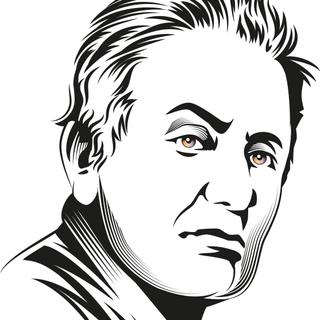


Denis Charbit, Israeli political scientist: 'Israel does not function like a normal state'
InterviewIn an interview with Le Monde, the political science professor analyzes various aspects (constitution, religious power, citizenship) of the construction of the Israeli state.
Denis Charbit, professor of political science at the Open University of Israel in Raanana (Israel), is the author of Israël et ses Paradoxes ("Israel and its Paradoxes") and has just published Israël, l'Impossible Etat Normal ("Israel: The Impossible Quest for a Normal State").
Your new book not only paints a critical portrait of a state with no constitution, no formal citizenship and no clearly defined borders, but you also point out that, almost 80 years after the creation of Israel, none of these issues are about to be resolved. Why is that?
Anyone can make this observation: Israel does not function like a normal state. But before examining how this anomaly is linked to the [Israeli-Palestinian] conflict – a long-standing, emotional conflict that is now being taken to extremes, including rhetorically (terms such as "pariah state" and "apartheid") – instead of attributing this anomaly solely to the conflict, I want to look at what we Israelis have contributed over the past 76 years and our share of responsibility. This scientific approach looks at what we have produced in terms of the Constitution, religious power and nationality/citizenship.
Are you anticipating criticism of the word "normality?"
Indeed, the term can be fraught with connotations in French, as illustrated by the historical context of the word "normalization." When I talk about "normality," I'm not talking about "normal" in the conventional sense of the term, but rather about "norms." A democratic state is defined by certain norms, from which we are deviating in Israel, perhaps because of the conflict, but also because we have made decisions that we are not ready to change.
Alongside this scientific hypothesis, rather than reinforcing what we in the social sciences call common sense – give us peace and we'll conform to the norms – I put forward a moral and ethical point of view. This involves the personal dimension of this story, the way I define independence. It's not "I do what I want," but rather recognizing the mistakes and errors we make ourselves. What we are doing includes the Nakba [the 1948 exodus of Palestinians during the first Arab-Israeli war, who were then forbidden to return to what became Israel], as well as the way we are waging the current war in Gaza.
Of course, I'll leave the reader free to form his or her own opinion, but the underlying theme of this book is that we shouldn't have the luxury of saying that, somehow, these decisions were forced upon us. I'm too attached to individual freedom to think that everything stems from outside pressure. That's not a good way of getting at the truth, which remains our collective goal.
You have 72.14% of this article left to read. The rest is for subscribers only.
